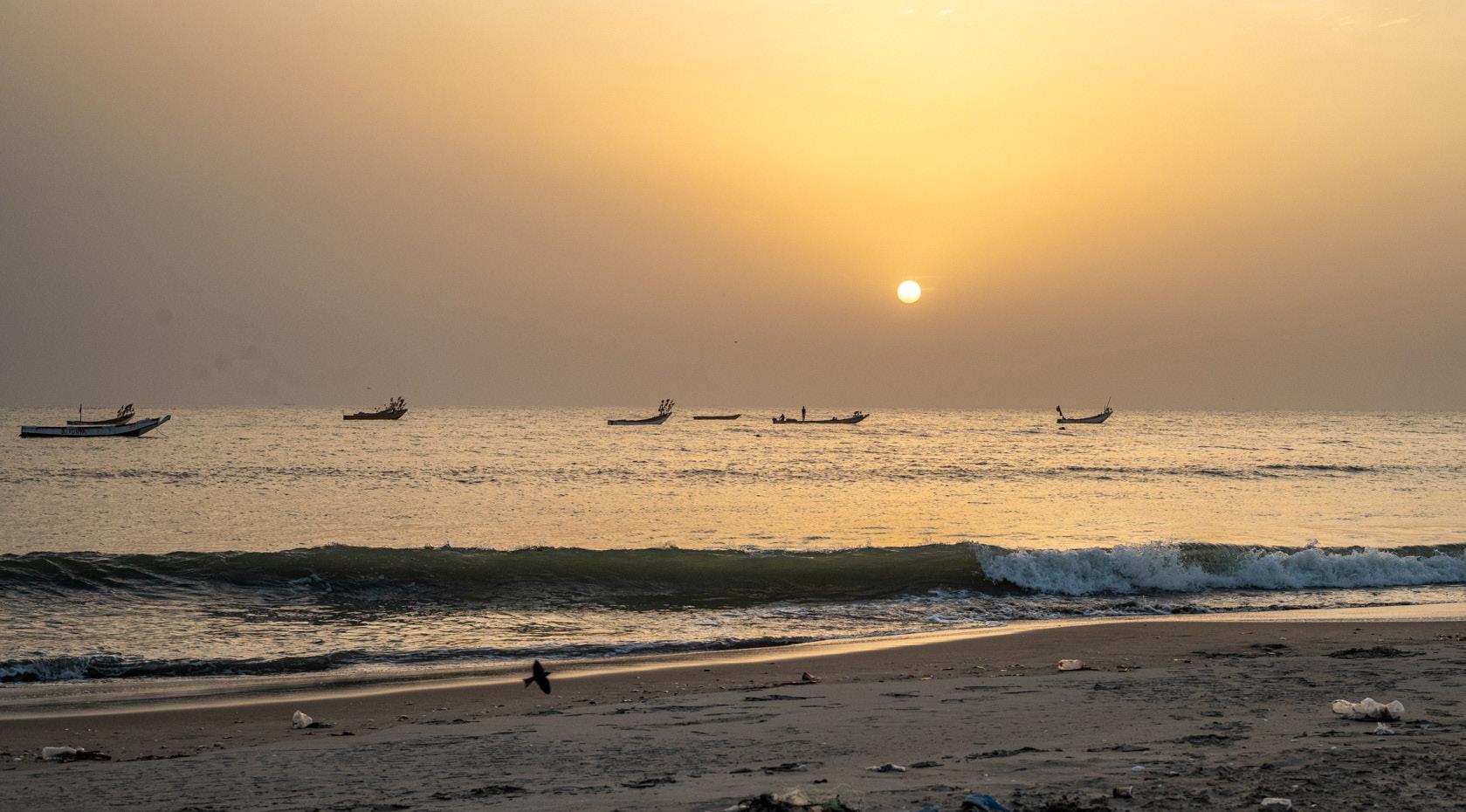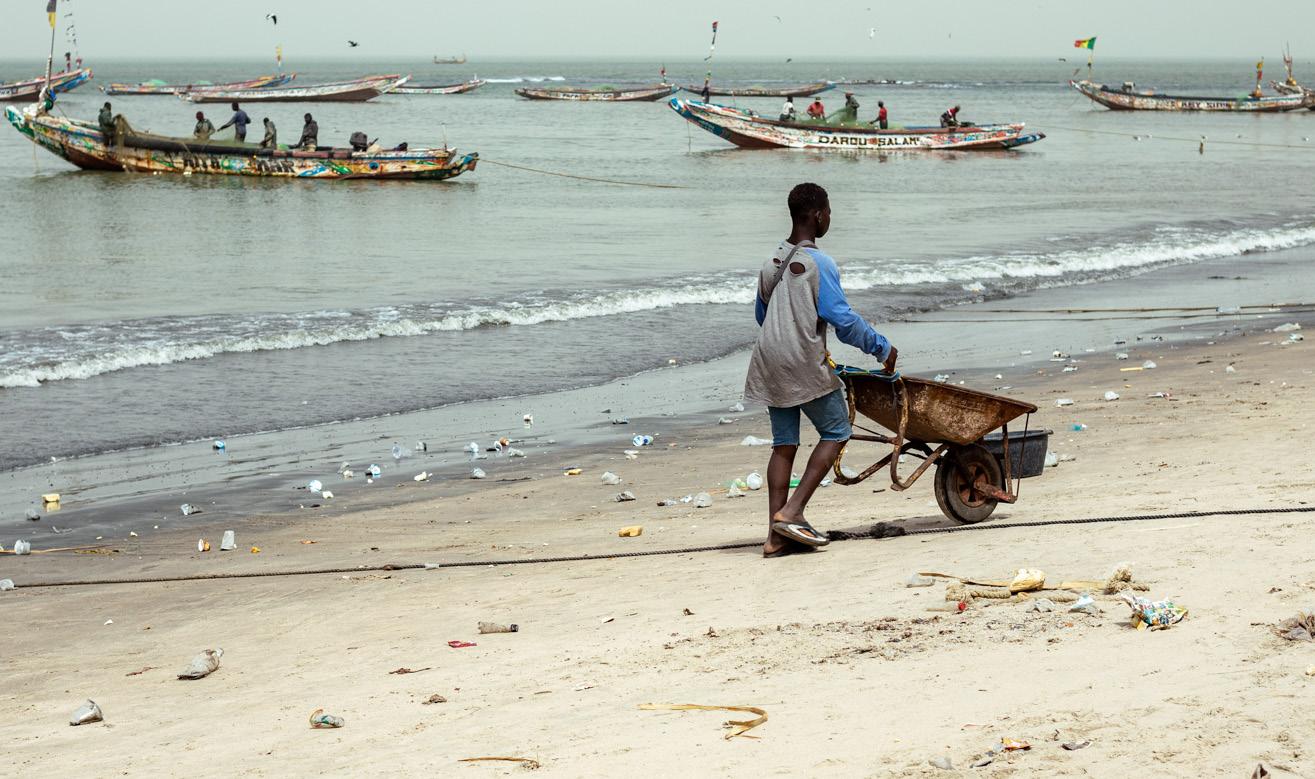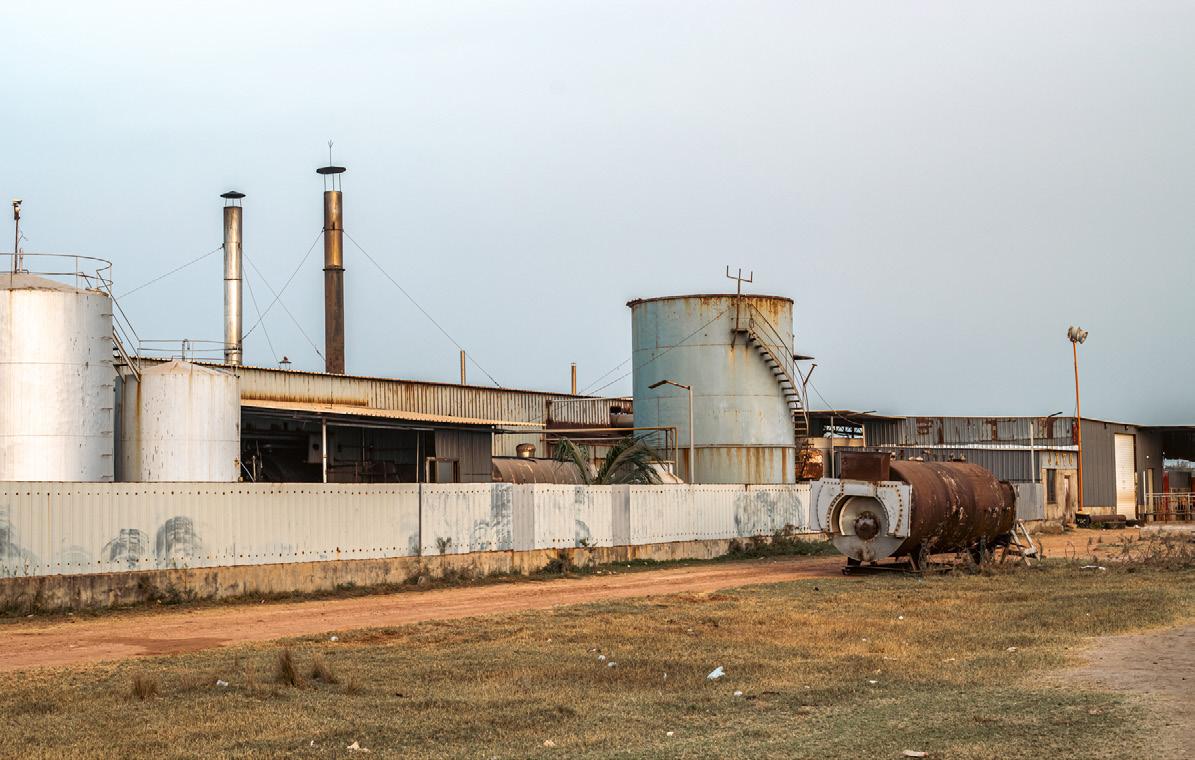
4 minute read
Seas of Change: The impacts of overfishing and neocolonialism in West African waters
Overfishing in West Africa has become a pressing issue, with detrimental effects on Indigenous populations and marine ecosystems. As the fishing industry in the region has expanded, driven largely by foreign interests seeking lucrative export opportunities, Indigenous communities have faced increasing challenges. Many West Africans see this as a new type of colonialism, where the region's resources are taken without caring about the people's well-being or the health of the marine ecosystems.
At the center of this problem is fishmeal, a highly sought-after product for foreign industries, leading to more foreign boats appearing in Western African waters and industries along the coastlines owned by foreign investors, without fair compensation for Indigenous populations. When deals are made, the true value of these resources is often ignored. But how did this all start?
Advertisement
In the mid-20th century, with the introduction of large-scale industrial fishing fleets and an increase of strict laws of offshore fishing in international waters, many countries looked to new regions to exploit fishing industries with either less infrastructure or policies to safeguard their waters. In the beginning, the fishmeal industry fueled by these fleets became a way to turn unsuitable fish or bycatch into a marketable item but as time passed it became a staple resource to support the growing livestock and aquaculture feed industry in countries such as China, Norway, Chile, and Vietnam.
With technological advancements in the global large-scale fishing industry, the construction of large fishmeal production factories began along the Western coastline of Africa, particularly in countries like Mauritania, Senegal, and The Gambia. In Mauritania alone - one of the world’s richest fishing grounds - the number of fishmeal production factories has risen from 6 to 23 factories since 2010, according to the Coalition of Fair Fisheries Agreement.
BY YSM

A young boy pushes a rusty wheelbarrow down the beach of Sanyang, in Kartong, to help collect the catch of the day off of the fishing boats. Photo credit: Abubacar Fofana, February 22, 2024
The decline in the fish population accessible to artisanal fishers is just one of the most direct consequences of fishmeal production. As reported by the Food and Agriculture Organization of the United Nations (FAO), fish stocks in numerous regions across West Africa have plummeted by more than 50% due to overfishing and unsustainable fishing practices. Moreover, the arrival of these large fishing fleets has brought extensive destruction to traditional fishing grounds and communities. The environmental degradation is significant, evident in illegal dumping, extensive damage to seabeds caused by bottom trawling, and habitat destruction, posing a looming threat of collapse for marine ecosystems.
Fishermen have also reported a significant shift in their fishing routines over the past 15 years. Previously, daily trips were sufficient, but now, according to research conducted through interview surveys by The Gambian Marine and Environmental Conservation Initiative, most fishermen find themselves venturing out for 2 to 5 days at a time. This change has become widespread throughout the region, stretching as far as Mauritania. These extended multi-day trips are necessary to secure an adequate survival catch and support their families.
Mustapha Manneh, a Mandinka man from The Gambian village of Kartong and one of the most vocal opponents of fishmeal factories, says the fishmeal industry is equivalent to the blood diamond industry. “It is very unfortunate that the fishmeal industry turns five kilos of raw fish into one kilo of fishmeal and this fishmeal is meant to feed European and Asian aquaculture while depriving the local people access to fish. You’re depriving people of access to fish, you’re depriving people of access to their identity. You're depriving people of access to their basic rights.”
According to the United Nations Environment Program (UNEP), over 30% of West Africa’s fish stocks are overexploited, with another 60% fully exploited. The significant quantity of fish leaving Western African waters

One of the many fishmeal factories lining the coastline of the village of Kartong, in The Gambia. Photo credit: Abubacar Fofana, Photo credit: Abubacar Fofana, February 22, 2024 not only exacerbates food insecurity but also prompts scrutiny of the economic losses stemming from overfishing. Many deals undervalue the resources extracted resulting in billions of dollars in annual losses due to unsustainable practices and short-sighted agreements.
Alongside the environmental issue, conflict has also become another consequence of large-scale fishing in West Africa, sparking clashes within communities, and leading to riots and the torching of villages. One recent incident occurred in The Gambian fishing village of Sanyang in 2021. Since then, protests against these foreign destructive fishmeal factories have increased. Additionally, insufficient waste management infrastructure at several factories has contaminated small farms operated by Indigenous women in the region, leading to the loss of income and food sources for many families.
Addressing these issues requires a multifaceted approach that involves empowering Indigenous communities and exploring avenues to enhance food security through permaculture. By prioritizing local needs and environmental stewardship, these communities can begin the process of healing their land and restoring balance to their ecosystems.
Community associations and projects in the region are striving to develop alternative approaches to food security, emphasizing selfsufficiency from the land. Along with the Kartong Permaculture Association, Mandinka educator Alaghie Manneh has dedicated her work to exploring how permaculture can offer hope for the future of these communities. “Permaculture is a holistic system that does not encourage large-scale fishing and neocolonialism,” says Manneh. “What we promote is to work with our nature and to let it create its diversity. We want to help train people to understand that they can have other sources to have fish in their own homes through raising fish through aquaponics and organic fish farms as well as general small-scale farming.”
A man entices potential customers to buy his fresh fish for the day while staying cool from The Gambian sun under a parasol, at the Tanji Fish Market, in Kartong. Photo credit: Abubacar Fofana, February 22, 2024

Collaborative efforts are crucial to address socio-economic and environmental challenges, safeguard marine biodiversity, and uphold the rights of Indigenous peoples. Listening to the voices of those affected is essential to forging a path that guarantees sustainable livelihoods, preserves cultural identity, and safeguards the prosperous future of West Africa's marine ecosystems.
By prioritizing local needs and environmental protection, Indigenous communities are shifting away from exploitation and towards empowerment.

A woman at the Tanji Fish Market, in Kartong, sells fresh catches of the day, fresh off the boat. These products will be sold directly to community members and generally to the local market. Photo credit: Abubacar Fofana, February 22, 2024

A young fisherman runs with freshly caught product from the wooden fishing pirogues pulling up to the beach of Sanyang, in Kartong. Photo credit: Abubacar Fofana, February 22, 2024
About the author:
YSM is a marine and environmental conservation professional with 10+ years of experience with a passion for shark conservation, Indigenous-led conservation, and land/ocean rights. They use nature-based solutions as a tool to spread knowledge and awareness in Western Afriqiyah and Abya Yala through the project of The Gambian Marine and Environmental Conservation Initiative. 6
RELATIVES






